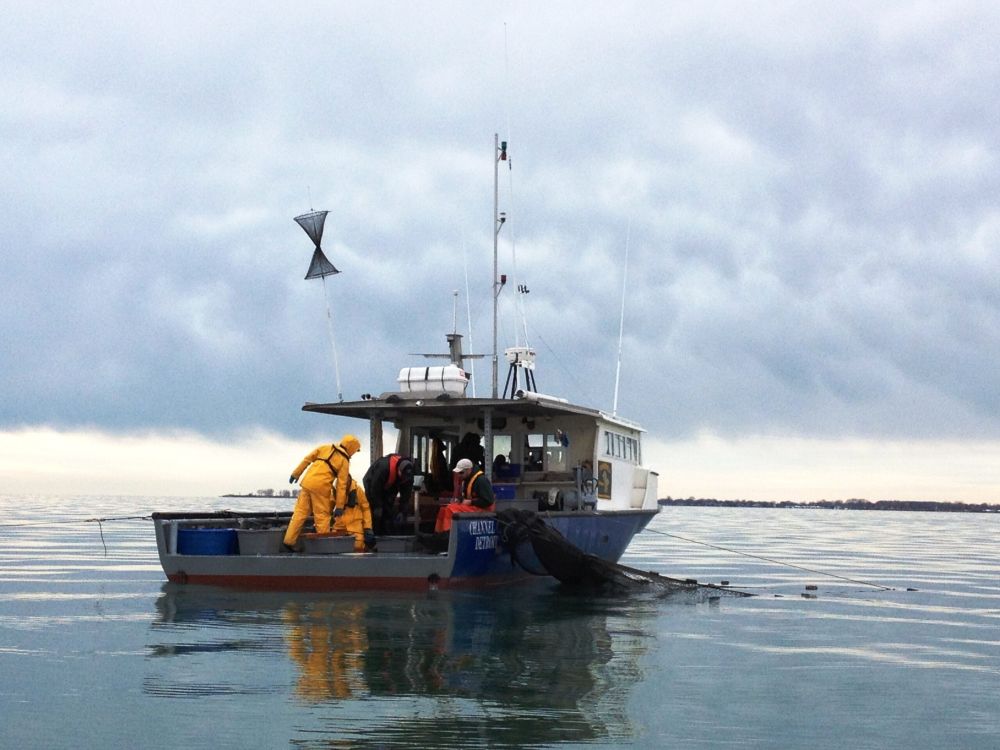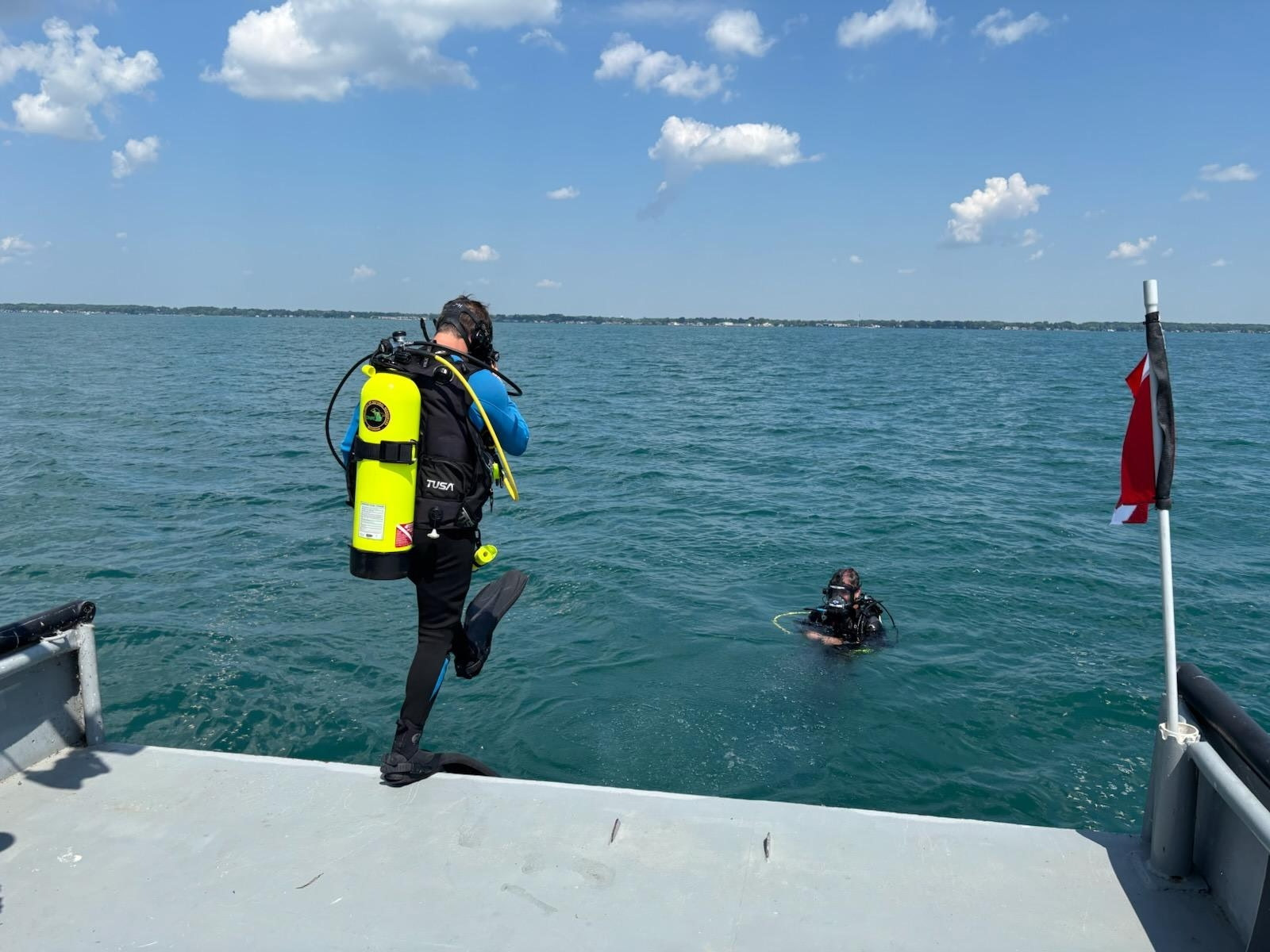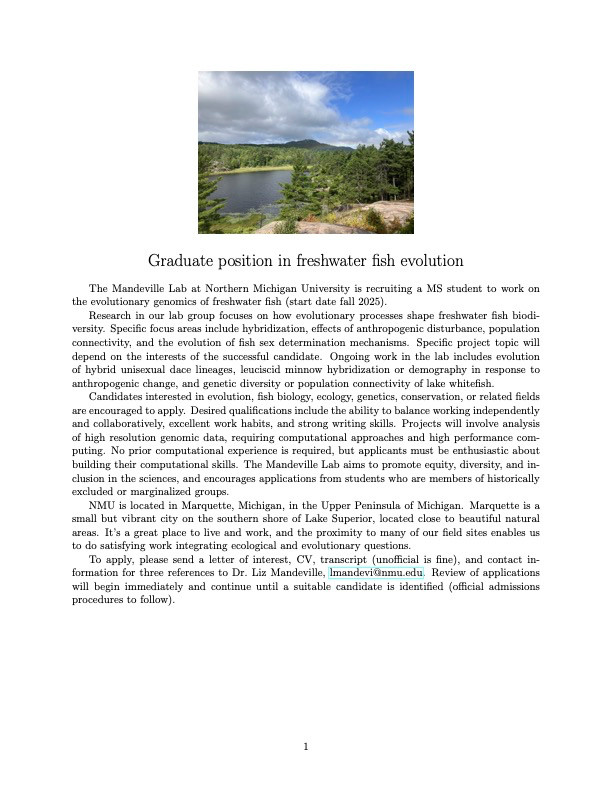One of the projects I worked on before and after my retirement was assembling a History of the Lake St. Clair Fisheries Research Station document. The pdf can be found on the stations website at this link:
www.michigan.gov/dnr/-/media/...
167 Followers
190 Following
Fisheries Research Biologist Studying Michigan's inland and Great Lakes Fisheries from the Lake St. Clair Fisheries Research Station 🇺🇲🇩🇪
Statistics
One of the projects I worked on before and after my retirement was assembling a History of the Lake St. Clair Fisheries Research Station document. The pdf can be found on the stations website at this link:
www.michigan.gov/dnr/-/media/...
Individual-based models reveal thermal refuges insufficient for brown trout survival during extreme heat events, predicting up to 86% mortality despite refuge availability. New paper! besjournals.onlinelibrary.wiley.com/doi/10.1111/...

While our model assumes static thermal refuge conditions due to data limitations, our findings highlight the limits of riverscape thermal refuges as a conservation tool under intensifying climatic co...
Grist is looking for an Upper Great Lakes reporter to cover climate impacts, environmental health, and solutions to the climate crisis, primarily for a local and regional audience. #journalismjobs
Apply here: job-boards.greenhouse.io/grist/jobs/4...
Grand Traverse Bay, Michigan
Check out this great article that features some of the work that our office has done!
Thanks to decades of catch-and-release fishing and shifting ecological factors, Lake St. Clair has become a world-class destination for smallmouth bass, just in time for the 2025 Yokohama Tire Bassmaster Elite tournament. 🎣

Thanks to decades of catch-and-release fishing and shifting ecological factors, Lake St. Clair has become a world-class destination for smallmouth bass, just in time for the 2025 Yokohama Tire Bassmas...
A couple of busy days on the R/V Channel Cat. Safety/emergency training yesterday and diving on acoustic receivers today!


Sweet video put together by our partners about recent Muskie tagging!
Don't be a sucker youtu.be/vGAqYNFQdZ4?...
Thanks for sharing this!
Check out our new paper! We examined demographic tends of a #GreatLakes smallmouth bass population in an effort to explain improvements in size structure. We believe a steady decrease in mortality is the best explanation! Find it here authors.elsevier.com/a/1kXkn1MRgT...

I am still looking for a Master's student to join my lab at Northern Michigan University in fall 2025. Please get in touch if you are interested, and share with keen students interested in fish, genetics, or evolution!
